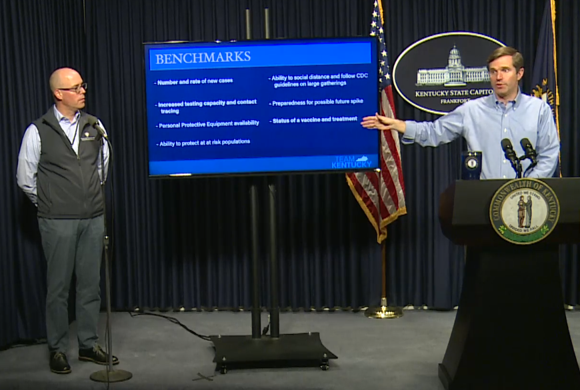Heath commissioner says Kentuckians’ wearing of masks ‘went up dramatically’ after governor issued mandate two months ago

Dr. Steven Stack and Gov. Andy Beshear at a press conference a few months ago
—–
Mask wearing became much more common in Kentucky after Gov. Andy Beshear made it mandatory on June 10, Health Commissioner Steven Stack said in an interview with the American Medical Association, of which he was president in 2015-16.
“Well, by saying it—pretty much,” Stack replied. “We’ve said over and over and over: ‘This is not about politics. It’s purely about public health and if we don’t do it, we’re going to pay a consequence and more people will get sick. When they get sick, they’ll go to the hospital, some people will die.’ We made the point that it really isn’t about any ideology. And what you have to do then is try to enlist people, a diverse array of people to show that it’s not politics. So that includes diversity in gender, ethnicity and social status. You need a variety of people modeling the behavior.”
He added, “This is a time when it’s an all-hands-on-deck moment for leaders—whether they’re elected political leaders, appointed people like me, physicians, nurses, teachers, principals and superintendents of schools, CEOs of businesses. All of us who have the capacity to understand just how serious this is have a responsibility to model these behaviors and consistently message why it is so important in order to depoliticize it and remove it from ideology and identity politics.”